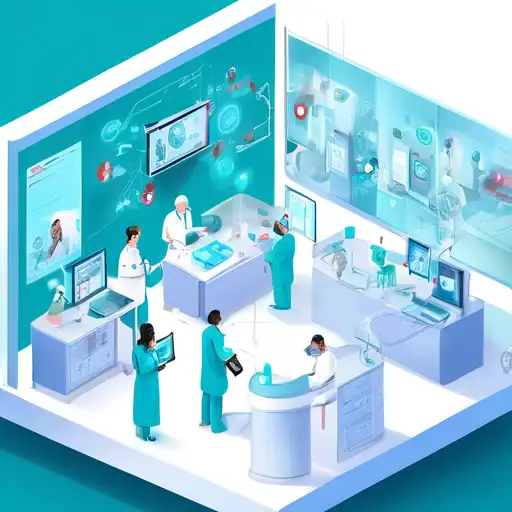Introduction to IoT in Healthcare
The Internet of Things (IoT) is revolutionizing various sectors, and healthcare is no exception. By integrating IoT devices and technologies, healthcare services are becoming more efficient, personalized, and accessible. This article explores the transformative impact of IoT on healthcare services, highlighting key innovations and benefits.
Key IoT Innovations in Healthcare
IoT in healthcare encompasses a wide range of applications, from wearable devices to advanced monitoring systems. Here are some of the most impactful innovations:
- Wearable Health Monitors: Devices like smartwatches and fitness bands track vital signs in real-time, enabling proactive health management.
- Remote Patient Monitoring: IoT devices allow healthcare providers to monitor patients' health remotely, reducing hospital visits and readmissions.
- Smart Hospitals: IoT technologies optimize hospital operations, from inventory management to patient care, enhancing efficiency and reducing costs.
- Telemedicine: IoT facilitates virtual consultations, making healthcare more accessible to people in remote areas.
Benefits of IoT in Healthcare
The integration of IoT into healthcare services offers numerous benefits, including:
- Improved Patient Outcomes: Real-time monitoring and data analysis enable timely interventions, improving patient health outcomes.
- Enhanced Efficiency: Automation and smart technologies streamline healthcare processes, reducing wait times and operational costs.
- Personalized Care: IoT devices collect vast amounts of data, allowing for tailored treatment plans based on individual health metrics.
- Increased Accessibility: Telemedicine and remote monitoring make healthcare services more accessible to underserved populations.
Challenges and Considerations
Despite its benefits, the adoption of IoT in healthcare faces several challenges, such as data security concerns, high implementation costs, and the need for robust infrastructure. Addressing these issues is crucial for maximizing the potential of IoT in healthcare.
Future Prospects
The future of IoT in healthcare looks promising, with advancements in AI and machine learning further enhancing the capabilities of IoT devices. As technology evolves, we can expect even more innovative solutions to emerge, transforming healthcare services for the better.
Conclusion
IoT is undeniably improving healthcare services by making them more efficient, personalized, and accessible. While challenges remain, the potential benefits far outweigh the drawbacks, paving the way for a healthier future powered by technology.
